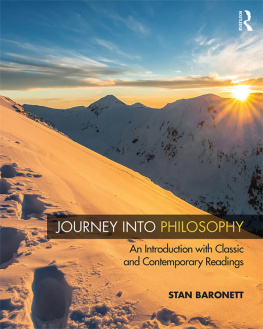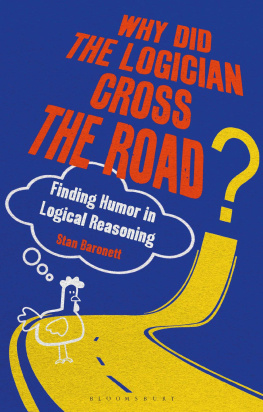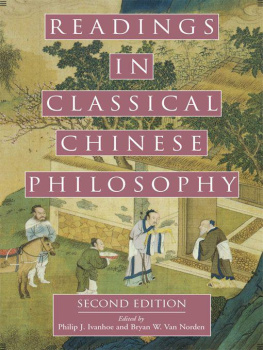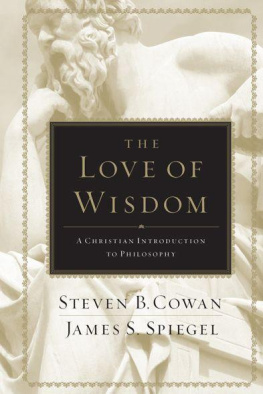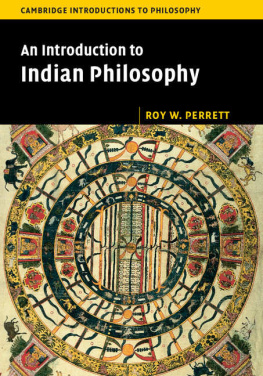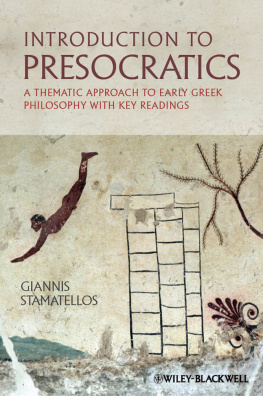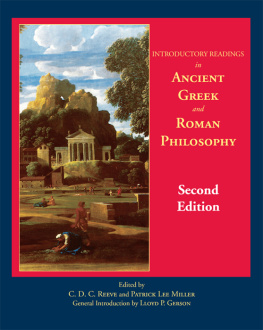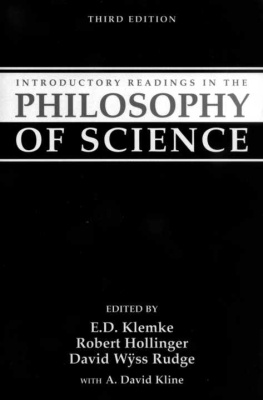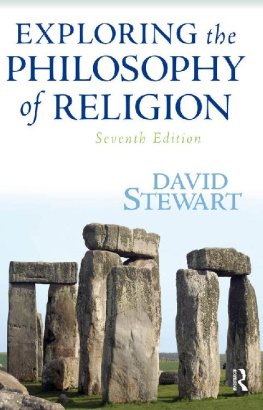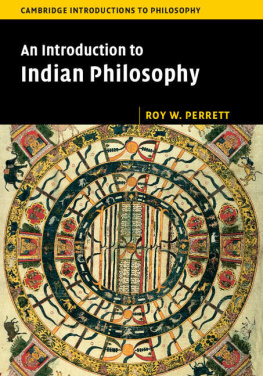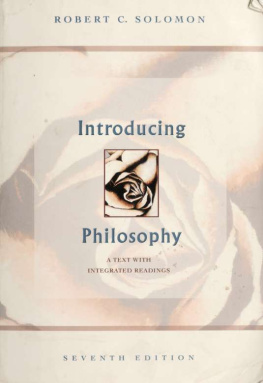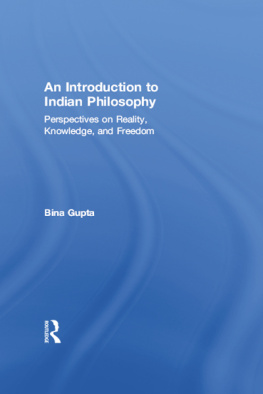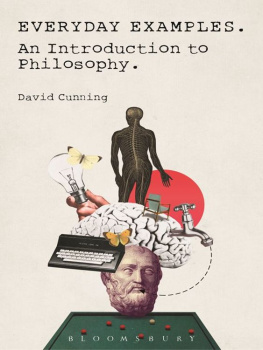Journey into Philosophy
The overriding rationale behind this book is a desire to enrich the lives of college students by introducing them to the practice of philosophical thought in an accessible and engaging manner. The text has over one hundred classical and contemporary readings that facilitate studying each philosophical issue from a variety of perspectives, giving instructors the opportunity to choose a set of readings that matches the individual needs of each class. It includes many selections by philosophers whose works are often ignored or underrepresented in other introductory texts. The initial reading, The Role of Philosophy, is a relevant, clear, and absorbing introduction to the discipline of philosophy. It uses everyday life situations to give students a solid foothold before they journey into specific philosophical topics. In addition, every section of the book has its own special introduction that connects each topic to students personal lives. The surrounding narrative is designed to be conversational and comprehensible. Special features include a section on the role of logic and a guide to writing a philosophy paper, two useful tools for approaching and analyzing philosophical writing for students who are new to philosophy. The book is accompanied by a companion website (www.routledge.com/cw/Baronett), with many helpful features, for students and instructors.
Stan Baronett is also the author of Logic, 3rd Edition (2015).
This looks like an exciting new text for beginning Philosophy students. Exciting because it includes in its readings some unique selections from philosophers who rarely make it into these texts but who offer startling insights that fill in the evolving picture of how philosophy started then and has developed up to now. A very nice mixture of these philosophers are women whom we know were significant but who have been given short shrift by traditional philosophy. This is also a very meaty book with lots of selections to choose from.
William S. Jamison, University of Alaska Anchorage, USA
I appreciate the care and thoughtfulness with which Baronett has put together the introductions. They do a lot more, in my opinion, to engage the student-reader than the introductions that I find in other similar textbooks, in which they tend to be written with jargons and abstruse terms, which Barnett avoids. Overall, Journey into Philosophy would work exceptionally well, in my opinion, for philosophy departments in which the introductory course is also a history of philosophy course. Having said that, I imagine there could very well be instructors who might find the book useful also for a problems-based introductory course.
Seung-Kee Lee, Drew University, USA
I like this book for use in an introductory philosophy course. It is engaging, accessible, and contains an appropriate selection of readings that nicely integrate to give students a comprehensive introduction to basic philosophical problems. The readings address key topics such as knowledge, existence, God, mind/body, consciousness, free will and determinism, ethics, politics, aesthetics, etc. Within each topic, the selected readings nicely balance classic and contemporary texts.
Corinne Bloch-Mullins, Marquette University
Journey into Philosophy
An Introduction with Classic and Contemporary Readings
Stan Baronett

First published 2017
by Routledge
711 Third Avenue, New York, NY 10017
and by Routledge
2 Park Square, Milton Park, Abingdon, Oxon, OX14 4RN
Routledge is an imprint of the Taylor & Francis Group, an informa business
2017 Taylor & Francis
The right of Stan Baronett to be identified as author of this work has been asserted by him in accordance with sections 77 and 78 of the Copyright, Designs and Patents Act 1988.
All rights reserved. No part of this book may be reprinted or reproduced or utilised in any form or by any electronic, mechanical, or other means, now known or hereafter invented, including photocopying and recording, or in any information storage or retrieval system, without permission in writing from the publishers.
Trademark notice: Product or corporate names may be trademarks or registered trademarks, and are used only for identification and explanation without intent to infringe.
Library of Congress Cataloging-in-Publication Data
Names: Baronett, Stan, editor.
Title: Journey into philosophy : an introduction with classic and contemporary readings / [edited by] Stan Baronett.
Description: 1 [edition]. | New York : Routledge-Taylor & Francis, 2016. | Includes bibliographical references and index.
Identifiers: LCCN 2016008114 | ISBN 9781138936478 (hardback) | ISBN 9781138936485 (pbk.)
Subjects: LCSH: Philosophy.
Classification: LCC BD21 .J69 2016 | DDC 100dc23
LC record available at https://lccn.loc.gov/2016008114
ISBN: 978-1-138-93647-8 (hbk)
ISBN: 978-1-138-93648-5 (pbk)
ISBN: 978-1-315-67678-4 (ebk)
Typeset in Joanna and Bell Gothic
by Apex CoVantage, LLC
Visit the companion website: www.routledge.com/cw/Baronett
Contents
Part One
Getting Started in Philosophy
Part Two
What Do We Know, and How Do We Know It?
Edited from Meno. Translated by Benjamin Jowett, 1892.
Edited from De Anima, Book III, Part 4. Translated by R. D. Hicks, 1907.
Edited from City of God, Book XI, Chapter 26. Translated by Rev. Marcus Dods, 1866.
Edited from Meditations on First Philosophy, Meditations I and II. Translated by John Veitch, 1901.
Edited from An Essay Concerning Human Understanding, 1690, Introduction, and Book I, Chapter I.
Edited from New Essays on Human Understanding. Translated by Alfred Gideox Langley, 1896.
Edited from A Serious Proposal to the Ladies, 1697, Chapter III.
Edited from An Enquiry Concerning Human Understanding, 1748, Sections II, IVV.
Edited from Critique of Pure Reason. Introduction. Translated by J.M.D. Meiklejohn, 1900.
Edited from Popular Science Monthly, Vol. 12, November 1877.
From Hypatia, Vol. 2, No. 3, 1987. pp 5164.
From Annals of the New York Academy of Sciences, Vol. 775, 1995, pp 266273.
From Analysis, Vol. 23, 1963, pp 121123.
From Mind, Vol. 62, No. 246, 1953, pp 202215.
Edited from Contemporary Theories of Knowledge, Rowman & Littlefield, 1987.
From Knowledge and the Motive for Truth, reprinted with permission of the author.
Part Three
The Stuff That Dreams Are Made Of
Edited from Republic, Books VIVII. Translated by Benjamin Jowett, 1892.
Edited from Metaphysics, Books III, IV, VII, X, and XII. Translated by W. D. Ross, 1908.
Edited from Observations Upon Experimental Philosophy, 1666, Sections 12, 16, and 20.
Edited from An Essay Concerning Human Understanding, 1690, Book II, Chapters VIIIIX.
Edited from The Monadology. Sections 120. Translated by Robert Latta, 1898.
Edited from A Treatise Concerning the Principles of Human Knowledge, 1710, Sections 141.
Edited from An Enquiry Concerning Human Understanding, 1748, Section XII, Parts 1 and III.
Edited from Essays on the Perception of an External Universe, 1827, Preface and Chapter 1.
Edited from

